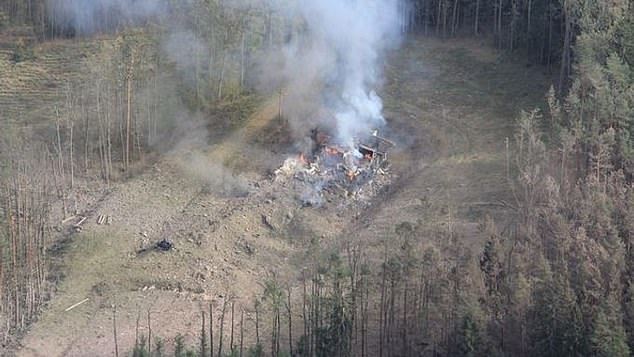The same Russian spy unit behind the 2018 Salisbury poisonings was behind two deadly explosions at ammunition depots in the Czech Republic, an investigation has found.
Explosions near the village of Vrbetice in the eastern Czech Republic in 2014 killed two workers and caused extensive damage, four years before an assassination attempt against former Russian agent Sergei Skripal in the English town.
Czech authorities announced in 2021 that they had received evidence of Russian involvement in the explosions and expelled 18 Russian diplomats.
The country’s police said today that they have shelved the investigation – which was being carried out in collaboration with British police – involving the Russian secret service, citing Moscow’s unwillingness to cooperate.
However, the Czech National Central Office against Organized Crime (NCOZ) stated in its report that ‘the police authority considers it proven that the explosions (…) were carried out by members of the Russian military intelligence, the Main Administration of the General Staff of the Armed Forces of the Russian Federation (also known as GRU).’
The same Russian spy unit behind the 2018 Salisbury poisonings was behind two deadly explosions at ammunition depots in the Czech Republic, an investigation has found.
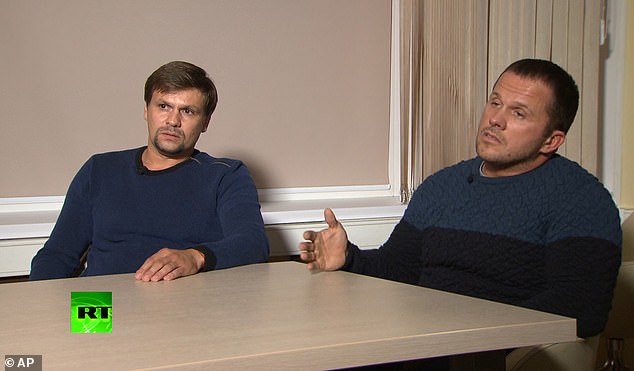
Czech intelligence and media said the agents were the same suspects in poisoning former Russian double agent Sergei Skripal and his daughter Yulia in Salisbury, England, in 2018: Anatoliy Chepiga and Alexander Mishkin (pictured).
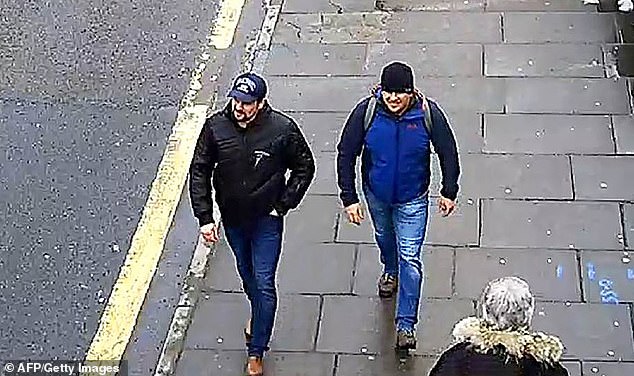
The pair used the same fake names they later used in the UK in the attack on the Skripals: Ruslan Boshirov (Chepiga) (left) and Alexander Petrov (Miskin) (right).
The unit’s motive was to “prevent the delivery of weapons and ammunition to areas where the Russian army was carrying out its operations,” the NCOZ said.
It was reported at the time that the ammunition would likely be transferred to Ukraine in its battle against pro-Kremlin separatists in the east, or to Syria to help opposition forces fighting the regime of Bashar al-Assad, an ally of Russia. .
The explosions in the NATO member Czech Republic occurred just months after Russia annexed Ukraine’s Crimean peninsula in early 2014, sparking anger in the West.
As a result of the explosions, two people died, more than a thousand people had to leave their homes, and it took the police six years to clear the area of ammunition.
Russia has long been suspected of waging a shadow war across Europe with secret units carrying out the Kremlin’s orders.
Czech police said the explosions in Vrbetice were “part of long-term diversionary operations of Russian military intelligence on the territory of the EU and Ukraine.”
Czech intelligence and media said the agents were the same suspects in poisoning former Russian double agent Sergei Skripal and his daughter Yulia in Salisbury, England, in 2018: Alexander Mishkin and Anatoliy Chepiga.
The pair used the same fake names they later used in the UK in the attack on the Skripals: Ruslan Boshirov (Chepiga) and Alexander Petrov (Miskin).
The Russian agents belonged to the notorious GRU Unit 29155.
While the report does not name Chepiga and Mishkin, their identities were revealed as suspicious and reported by Russian independent news outlet The Insider.
The same publication, along with its partners 60 Minutes and Der Spiegel, also found that the unit is likely the cause of Havana Syndrome, the name given to a series of debilitating medical ailments that affect American intelligence officers and diplomats in everyone and that are otherwise unexplained.
NCOZ said it dropped the case because Russia, which has been leading a large-scale invasion of Ukraine since February 2022, had refused to cooperate as long as the suspects are safe in Russia.
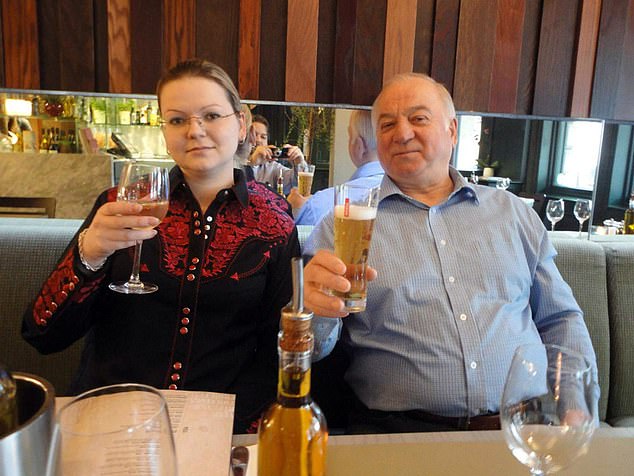
Sergei Skripal and his daughter Yulia were found together on a bench near Salisbury Cathedral on the afternoon of March 4 after being poisoned with the nerve agent Novichok.
“It is not possible to obtain the necessary information from the Russian army and the Russian secret services and… the police have decided to close the case,” a police statement said.
Moscow has refused to allow Mishkin and Chepiga to be questioned because “the Czech request could harm the sovereignty, public order and important interests of the Russian Federation.” This means that they cannot be officially charged in Prague.
The men only became suspects in the Czech Republic after their failed attempt to kill Skripal in the United Kingdom.
It is now known that they arrived in Prague on October 11, 2014 to carry out the explosions at the ammunition depot.
Chepiga and Mishkin remain wanted in Britain for the murder of local woman Dawn Sturgess, who was poisoned by the military-grade nerve agent Novichok, and the attempted murder of Skripal and her daughter.
The couple appeared on Russian state television in a farcical interview under their assumed names to insist they were tourists visiting Salisbury Cathedral.
According The inside In their own investigation, Chepiga and Mishkin were able to carry out the attack with the help of a pair of Russian sleeper agents, Nikolay and Elena Šapošnikov, who spent decades living as Czech citizens.
Elena Šapošnikov, according to the report, is a member of the famous GRU Unit 29155 and that she and her husband arranged for Mishkin and Chepiga to have access to the warehouses in Vrbětice.
The publication claims that the Šapošnikov family are the first “illegals” directly linked to Unit 29155, charged with discreetly executing Russia and Putin’s orders abroad.
It is said that, although both Šapošnikov spouses were dedicated to espionage for Russia, Elena seems to be the only one integrated into the secret unit.
Czech investigators have discovered that she likely directed and supervised the activities of her husband and possibly her son in support of Russian interests.
According to Insider, Nikolay died of a heart attack in February 2024, while Czech authorities are awaiting a decision from Greece on whether they can extradite Elena to the Czech Republic to face criminal charges.
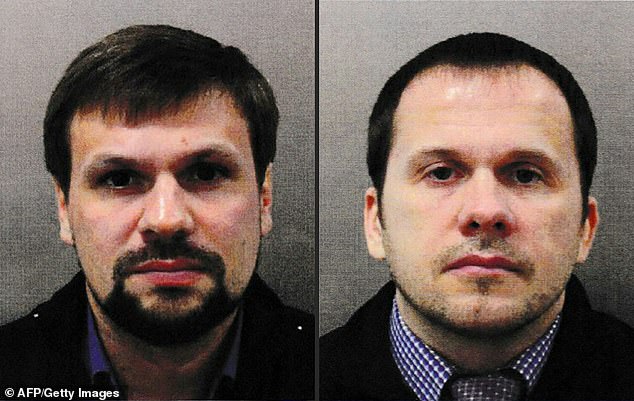
This combination of undated photographs released by the British Metropolitan Police Service created in London on September 5, 2018 shows Ruslan Boshirov (L) and Alexander Petrov, wanted by British police in connection with the nerve agent attack on the former Russian spy Sergei. Skripal and his daughter Yulia
Czech intelligence released details of the explosions in 2021, which led to the mass mutual expulsion of dozens of diplomats and other embassy staff.
Moscow subsequently called the Czech Republic “a hostile state” that has “carried out hostile actions” against Russia.
Media said the explosions were supposed to have occurred outside the depot to destroy weapons owned by a Bulgarian dealer and possibly destined for Ukraine.
The Czech Republic, an EU and NATO member with 10.9 million people, has provided significant humanitarian and military aid to kyiv since the Russian invasion began.

